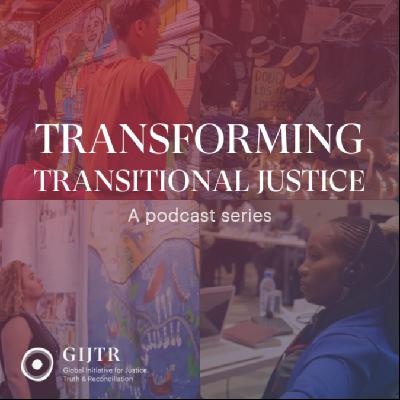Documentation's Key Role in Accountability, Healing, and Justice
Update: 2024-06-18
Description
Welcome to the fourth episode of Transforming Transitional Justice, a podcast from the Global Initiative for Justice, Truth and Reconciliation, a flagship program of the International Coalition of Sites of Conscience, a global network of historic sites, museums and memory initiatives that support communities to confront painful pasts in order to establish more just and peaceful societies today.
Documentation is crucial to protecting human rights and the pursuit of justice. When formal accounts of violations and atrocities are not recorded and preserved the experiences of victims and survivors are left unacknowledged and unaccounted for. Without a clear record of the crimes committed, perpetrators enjoy impunity, and the pain of survivors is needlessly exacerbated and societies are robbed of valuable lessons for creating more just and peaceful futures.
Our expert guests guide us through different conflict and post-conflict situations around the world and how documentation (and especially the role of locally led initiatives) is absolutely vital to healing, reconciliation, and justice.
VISIT: www.gijtr.org to learn more
Guests on this episode include:
Cynthia Ibale, a GIJTR partner and Senior Lawyer at Project Expedite Justice, with a focus on Sudan.
Dario Colmenares Millán, a Program Director for GIJTR, providing direct support in Columbia, Myanmar, and Bangladesh.
Documentation is crucial to protecting human rights and the pursuit of justice. When formal accounts of violations and atrocities are not recorded and preserved the experiences of victims and survivors are left unacknowledged and unaccounted for. Without a clear record of the crimes committed, perpetrators enjoy impunity, and the pain of survivors is needlessly exacerbated and societies are robbed of valuable lessons for creating more just and peaceful futures.
Our expert guests guide us through different conflict and post-conflict situations around the world and how documentation (and especially the role of locally led initiatives) is absolutely vital to healing, reconciliation, and justice.
VISIT: www.gijtr.org to learn more
Guests on this episode include:
Cynthia Ibale, a GIJTR partner and Senior Lawyer at Project Expedite Justice, with a focus on Sudan.
Dario Colmenares Millán, a Program Director for GIJTR, providing direct support in Columbia, Myanmar, and Bangladesh.
Comments
In Channel






